Keeping up with daily meds tricky, more so when juggling multiple prescriptions. Scribbled notes easy to lose, and hard remembering if pill taken or missed. Folks often seek easy way to track, ensure health not compromised. Need simple, clear solution, like printable log, tailored for keeping track without hassle.
We create simple, yet effective daily medication logs. They help keep track of meds, dosages, and times. Columns for each are clearly marked, making it easy to fill out and refer back to. Such logs are a handy tool for staying on top of one's health routine.
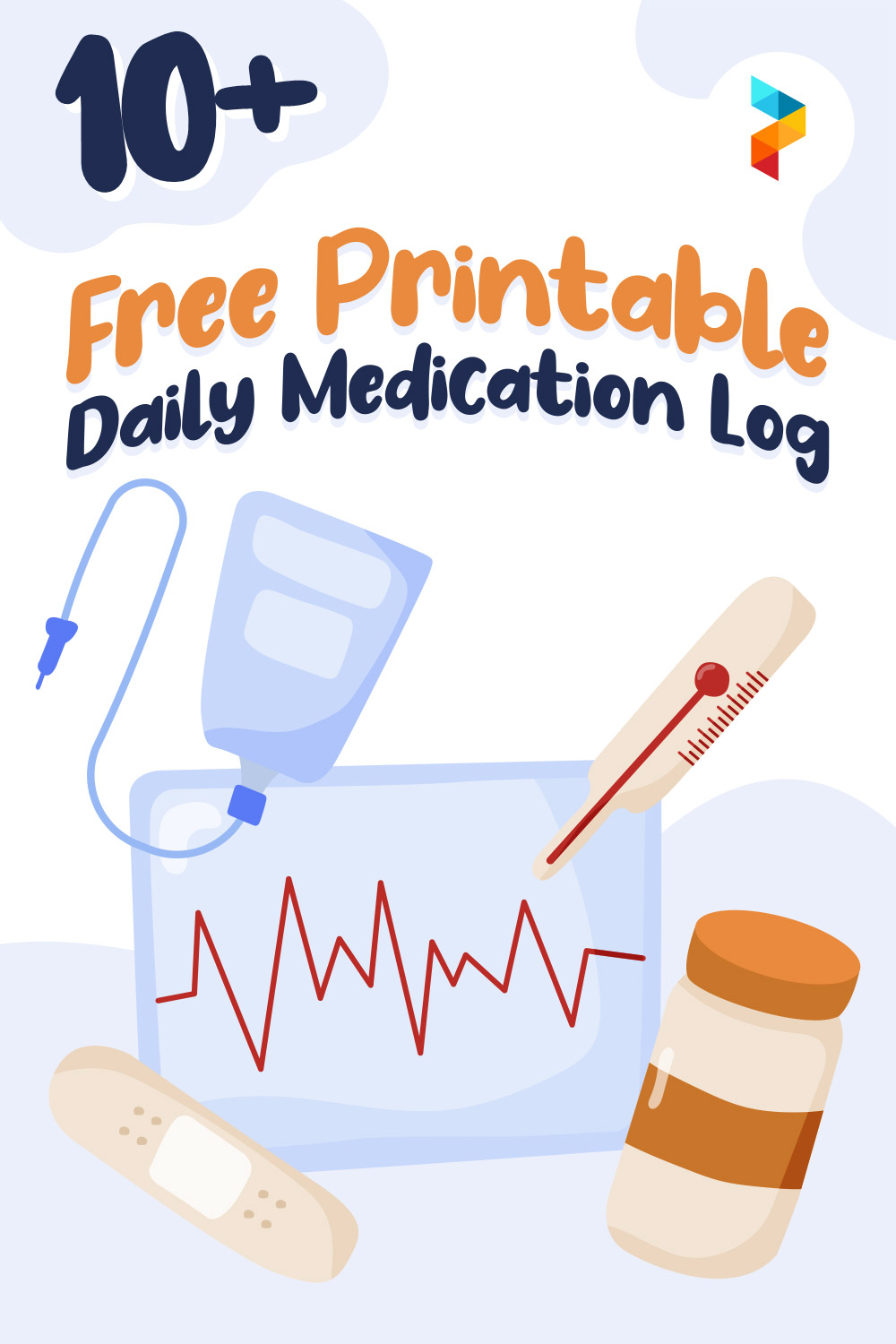
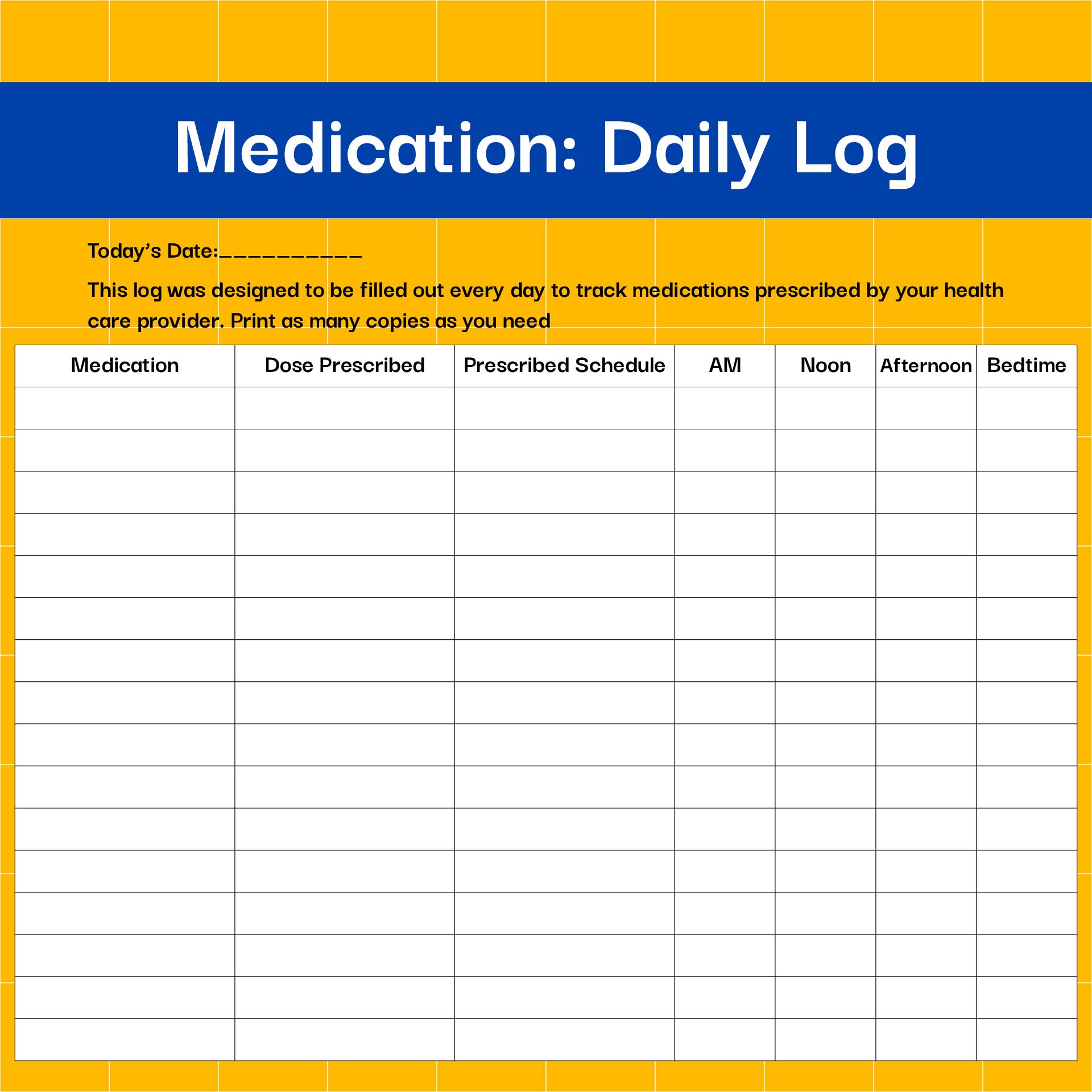
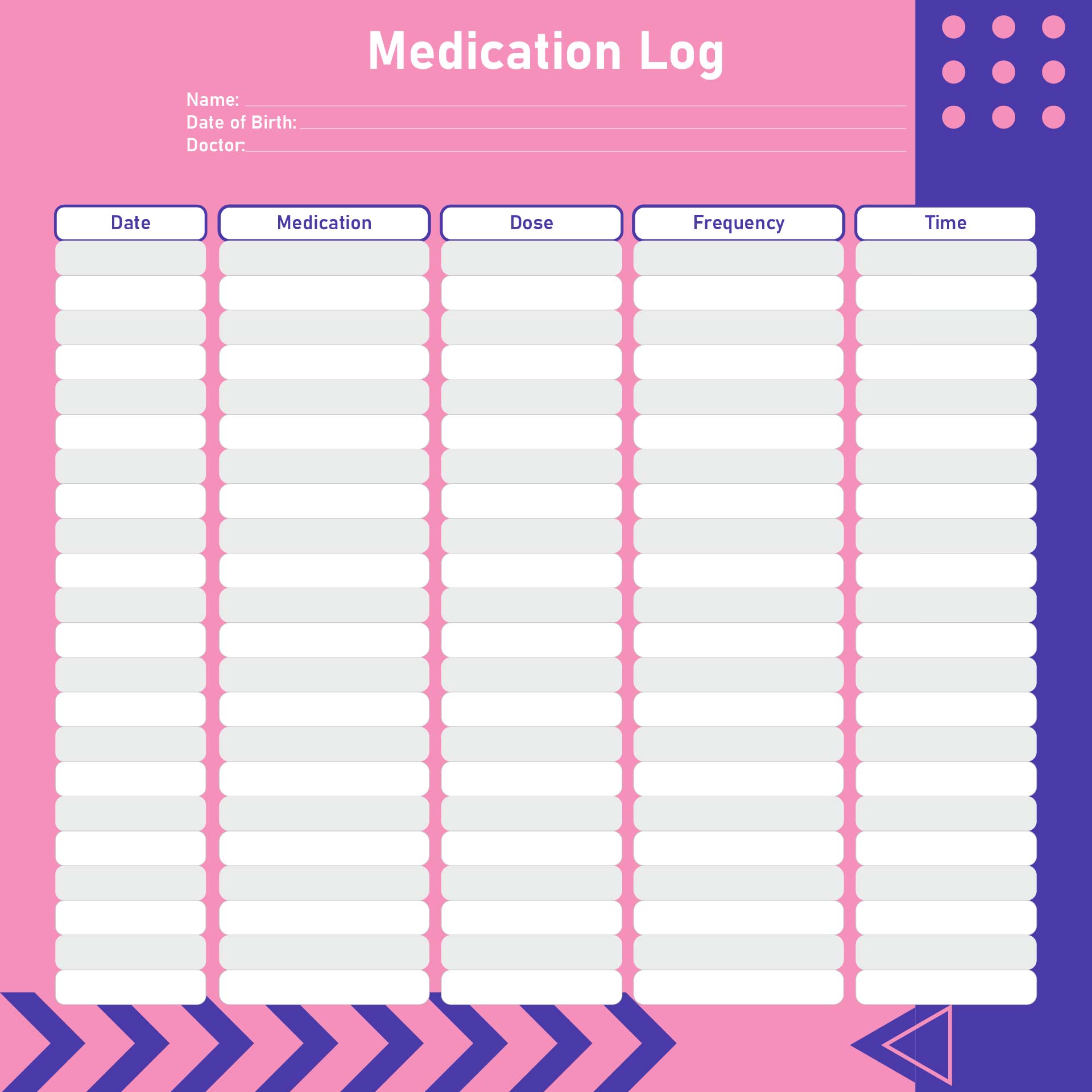
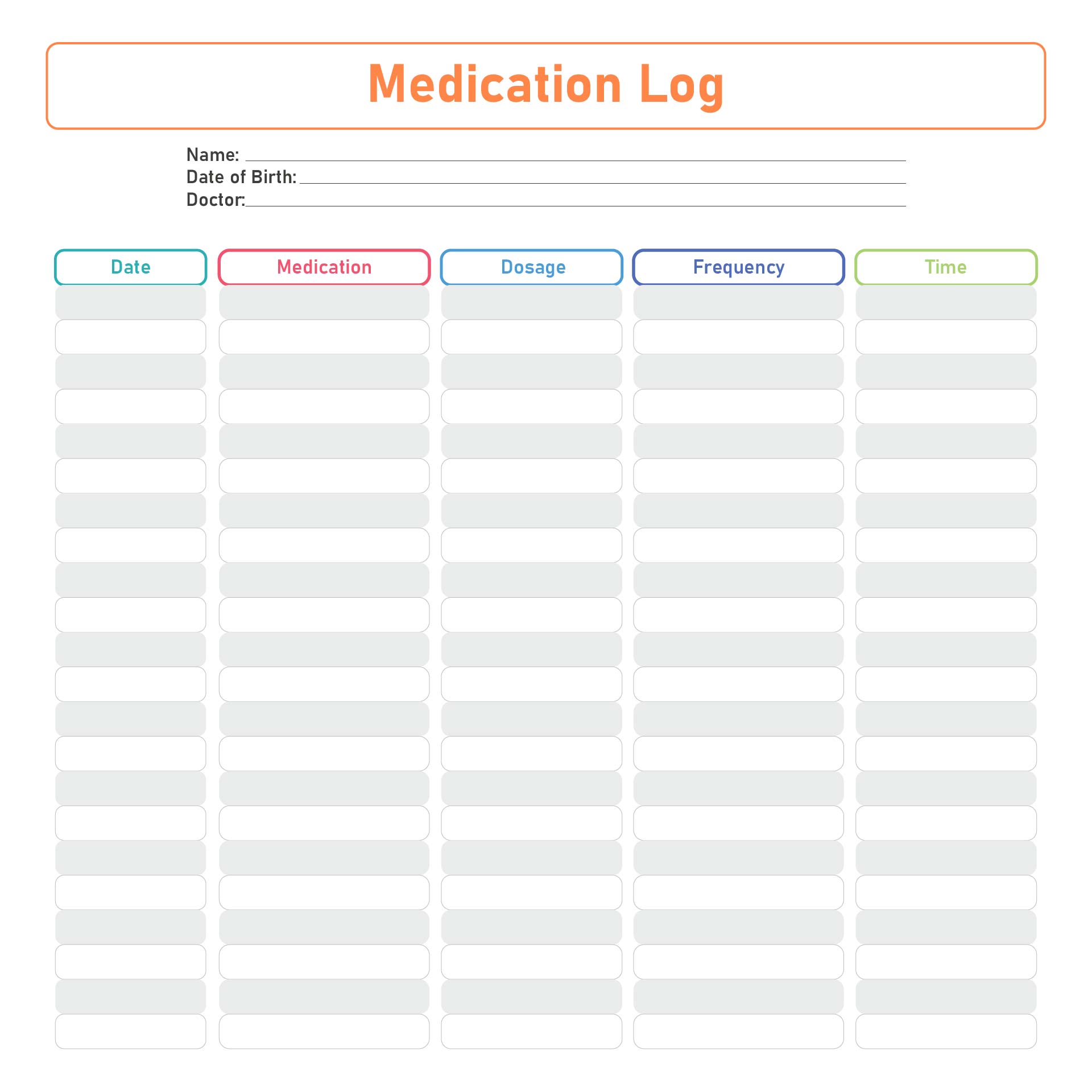
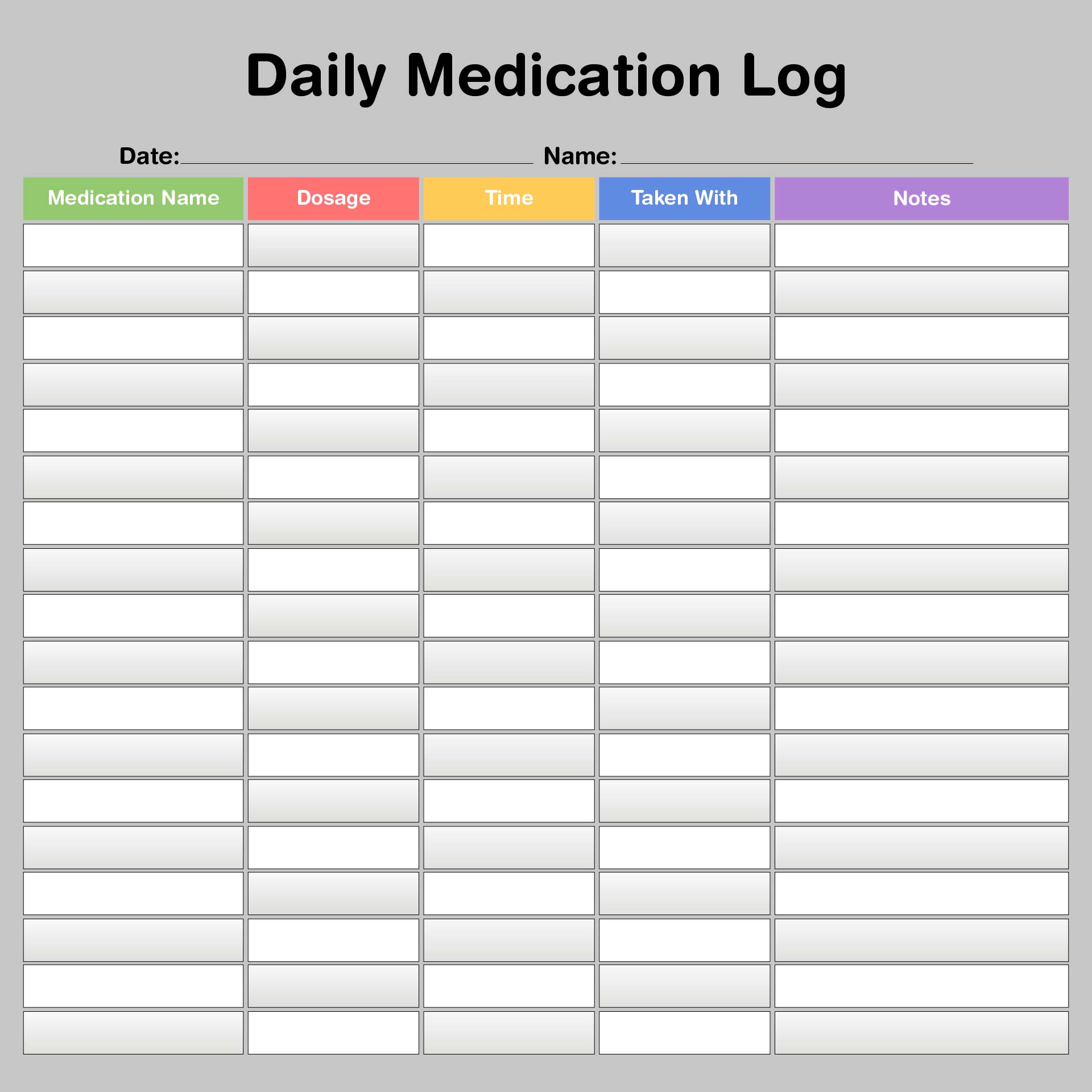
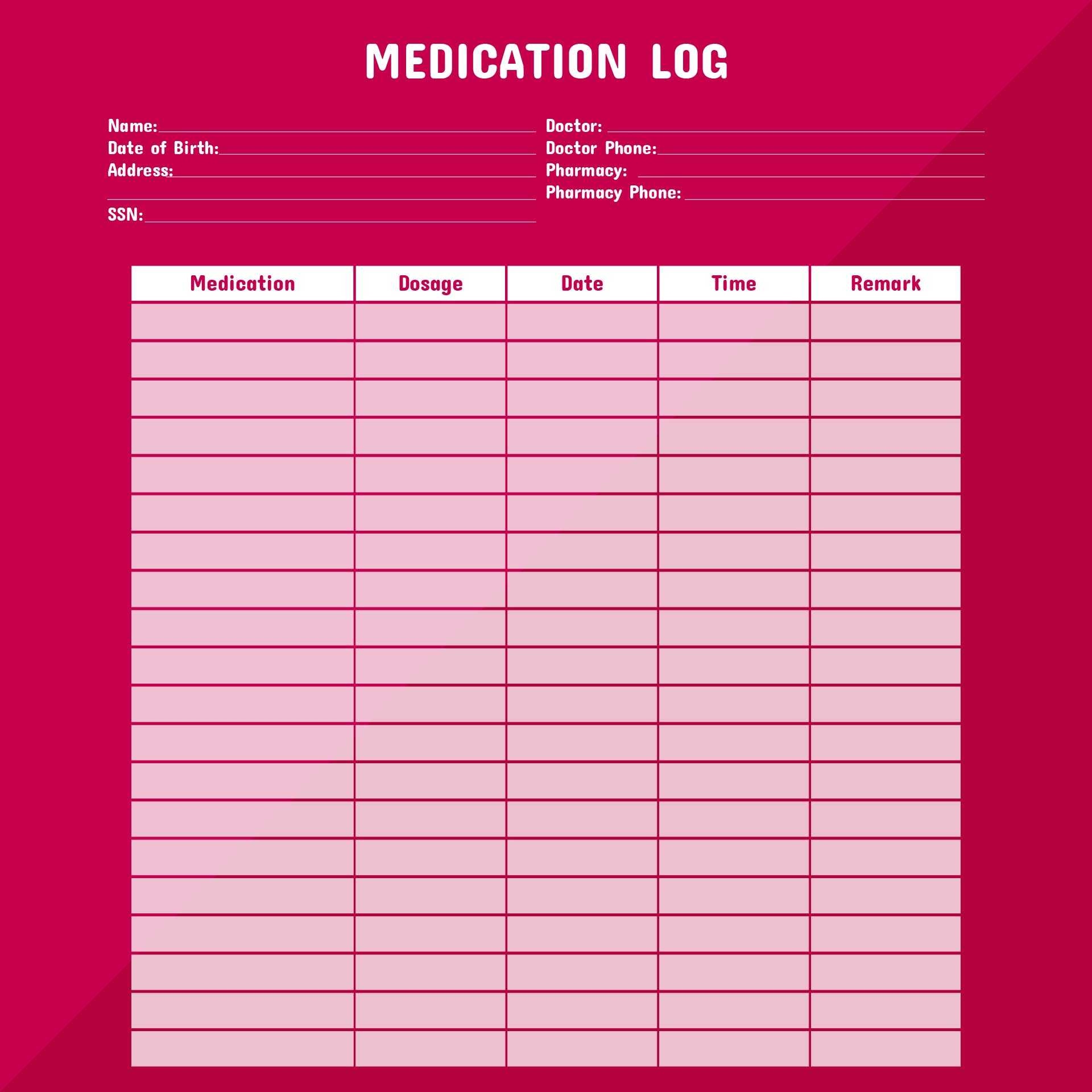
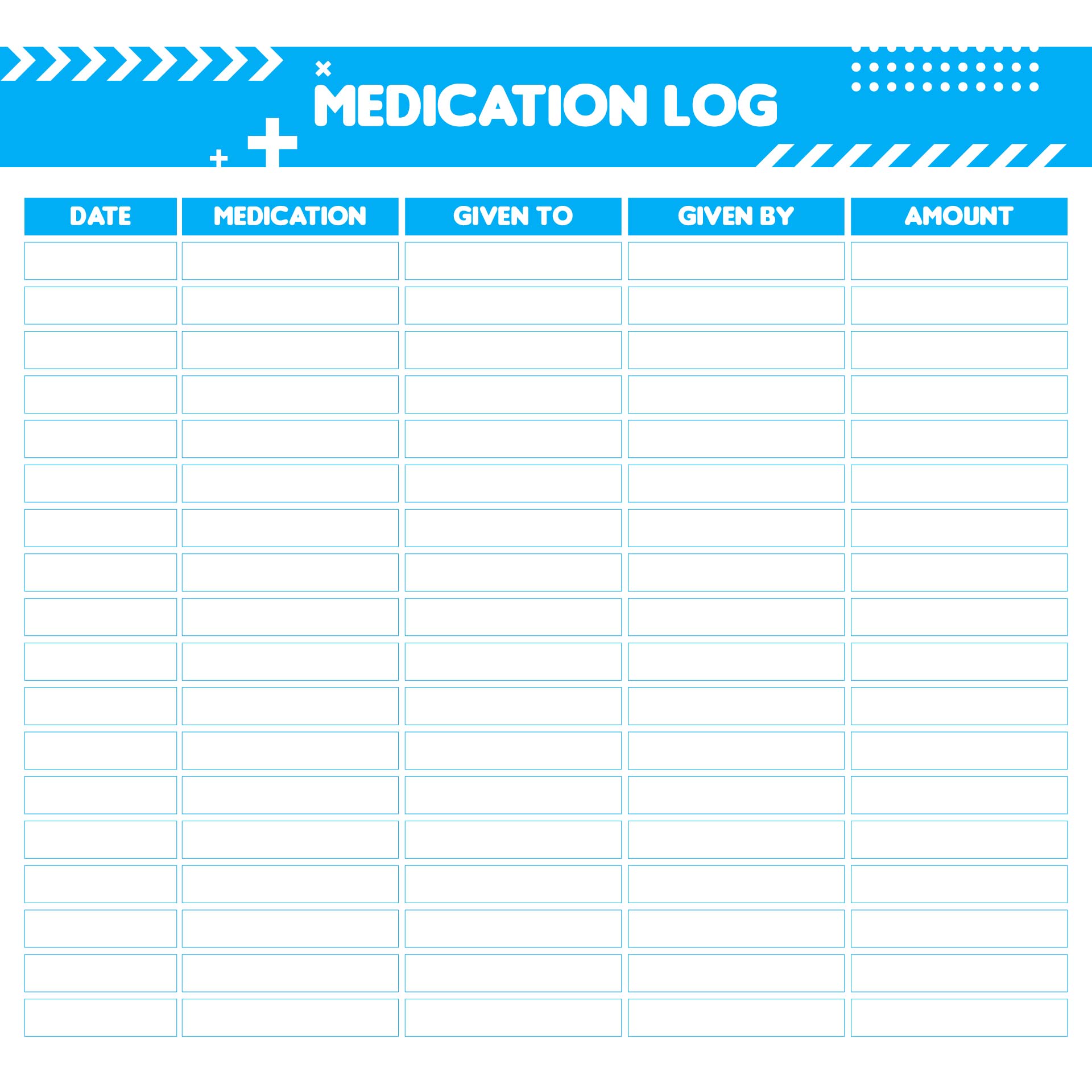
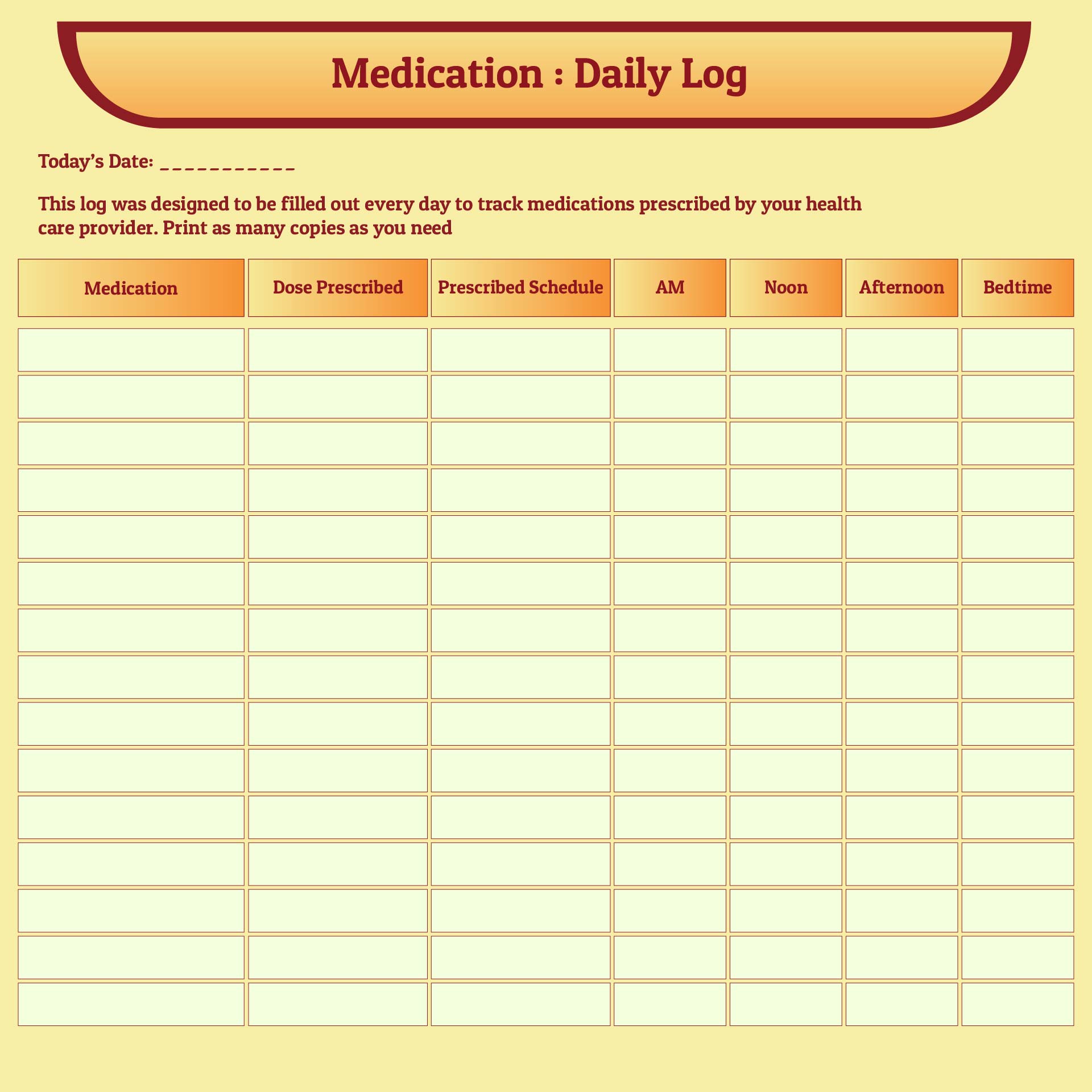



When someone is sick, taking medication is one way to recover from the illness. Drugs consumed by patients are not always just one type, but many, and each drug has its own advantages and uses. This can be found in patients who have more than one disease, for example, when someone has a complicated disease. Therefore, it should be noted that when a person consumes a wide variety of drugs, avoid taking drugs irregularly which can lead to an overdose. That way, it is necessary to pay attention to how to organize the drugs that will be consumed. Some tips and ways to organize drugs will be explained as follows. First, if you take a variety of medications on a routine basis, a pill organizer might be quite useful. Each day's amount of medication is stored in one of seven or more containers. Keep a dosing plan accessible that provides a physical description of each tablet, such as "the blue capsule" or "big white pill," to ensure that medication is taken on time. Next, keep a checklist of all the medications you're taking, including the name, dosage, frequency, adverse effects, and whether or not you've stopped taking them. Include any drug allergies you may have. Next, using a medicine application, there are many apps that can help you manage your medications if you have a smartphone or tablet. They include those that allow you to look up medicine, create a medication timeline, and receive pill reminders. Last, keep in mind to examine the expiration date and refill information on medication labels. Dispose of outdated medications properly. If you're getting low on a refillable medicine, call your pharmacist before you run out. You will not miss any dosages this way. Furthermore, these easy tips to check and organize your medications will help you to get better by consuming them at the exact time and doses.
People forget stuff, right? Happens all the time, especially with daily medications. It's easy to miss a dose or double up. So, need a way to track this, make sure everything's taken right and on time. Not just for personal use but maybe someone's caring for others, gotta keep their meds straight too. Simple solution could help a lot, stop the mix-ups.
We focus on making medication management simpler with a designed daily medication log. This tool helps keep track of medicines, dosage, and timing. Handy for both caregivers and individuals managing their own health, it ensures no detail is missed. Helps in maintaining a consistent medication schedule.
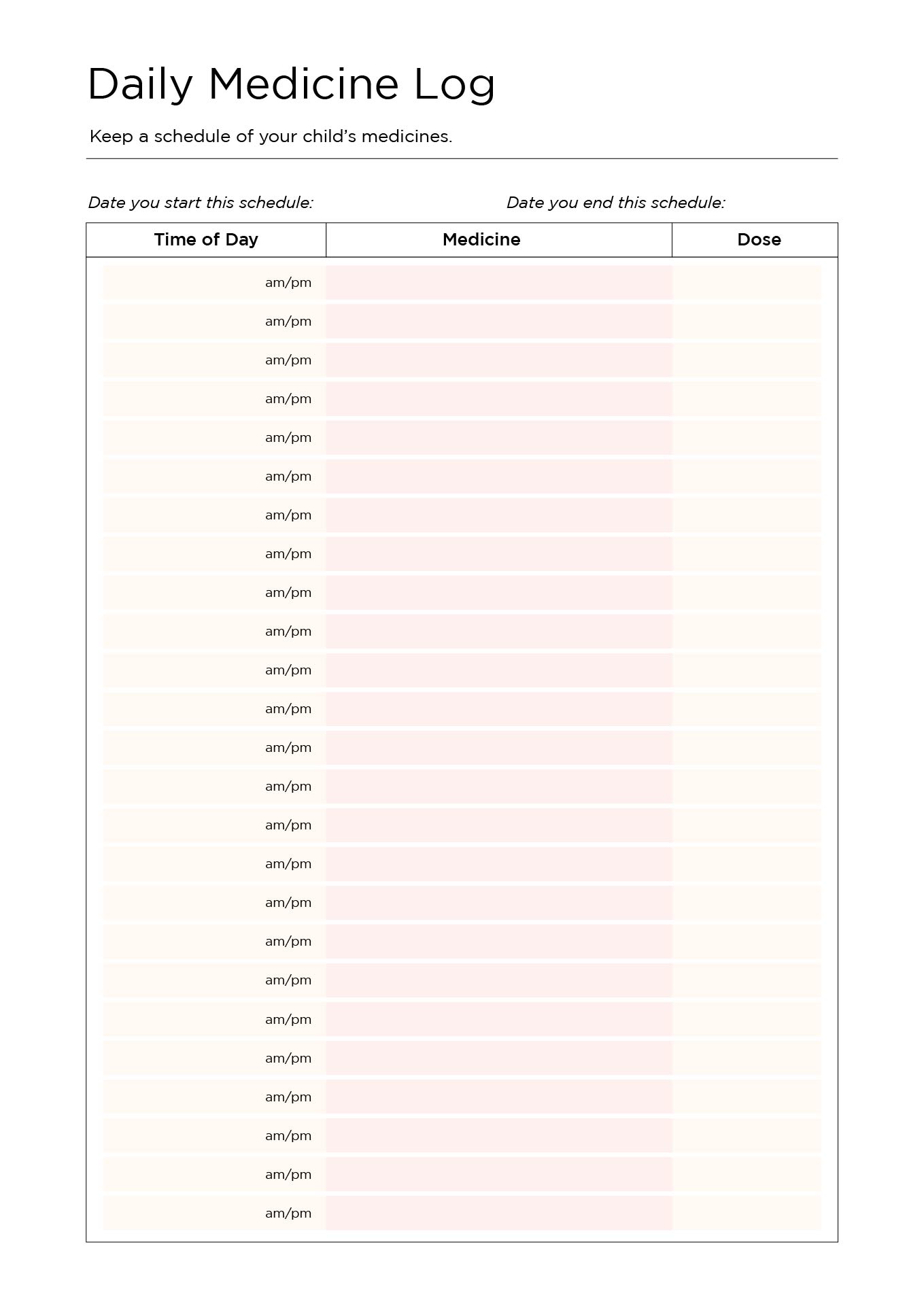
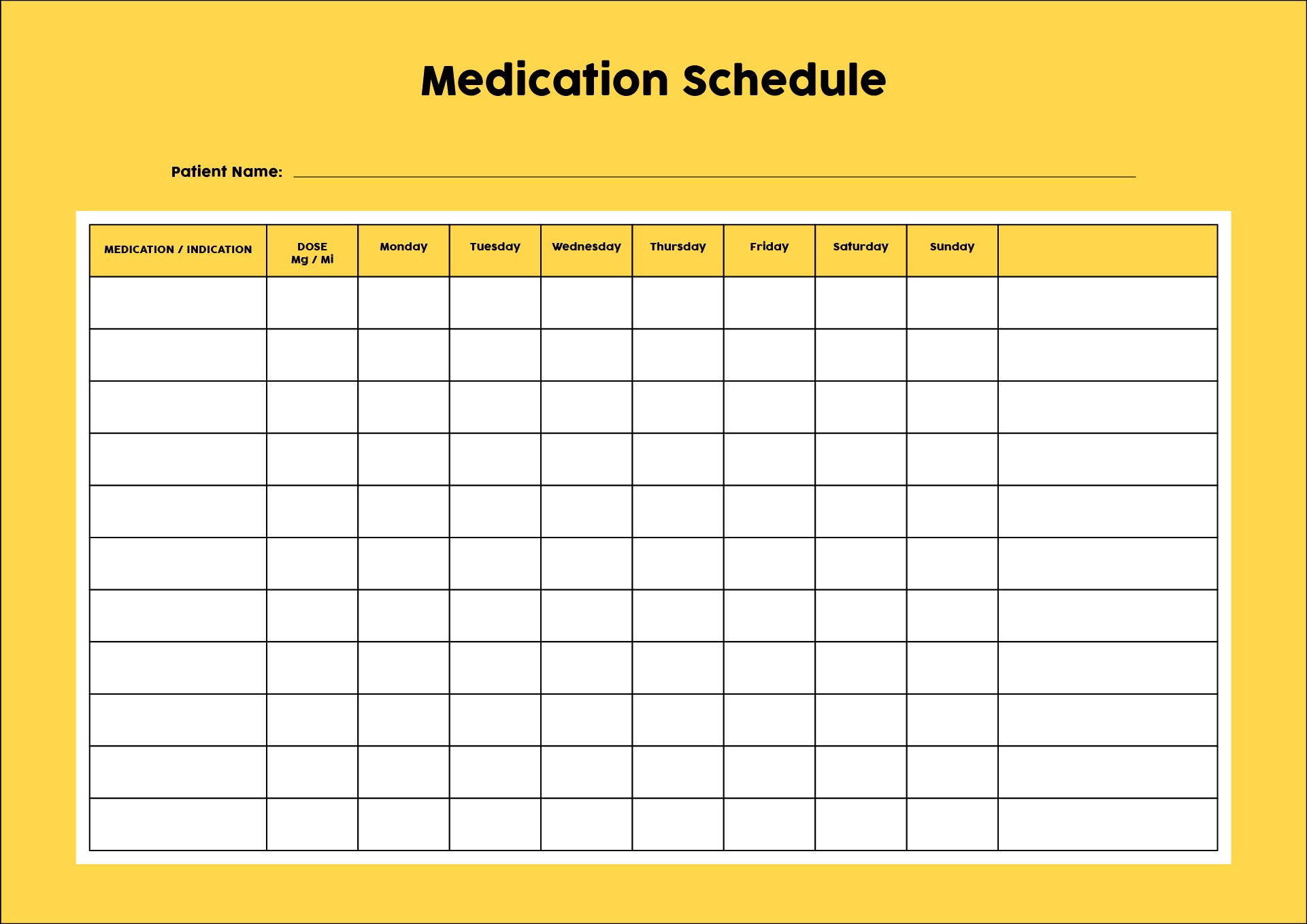
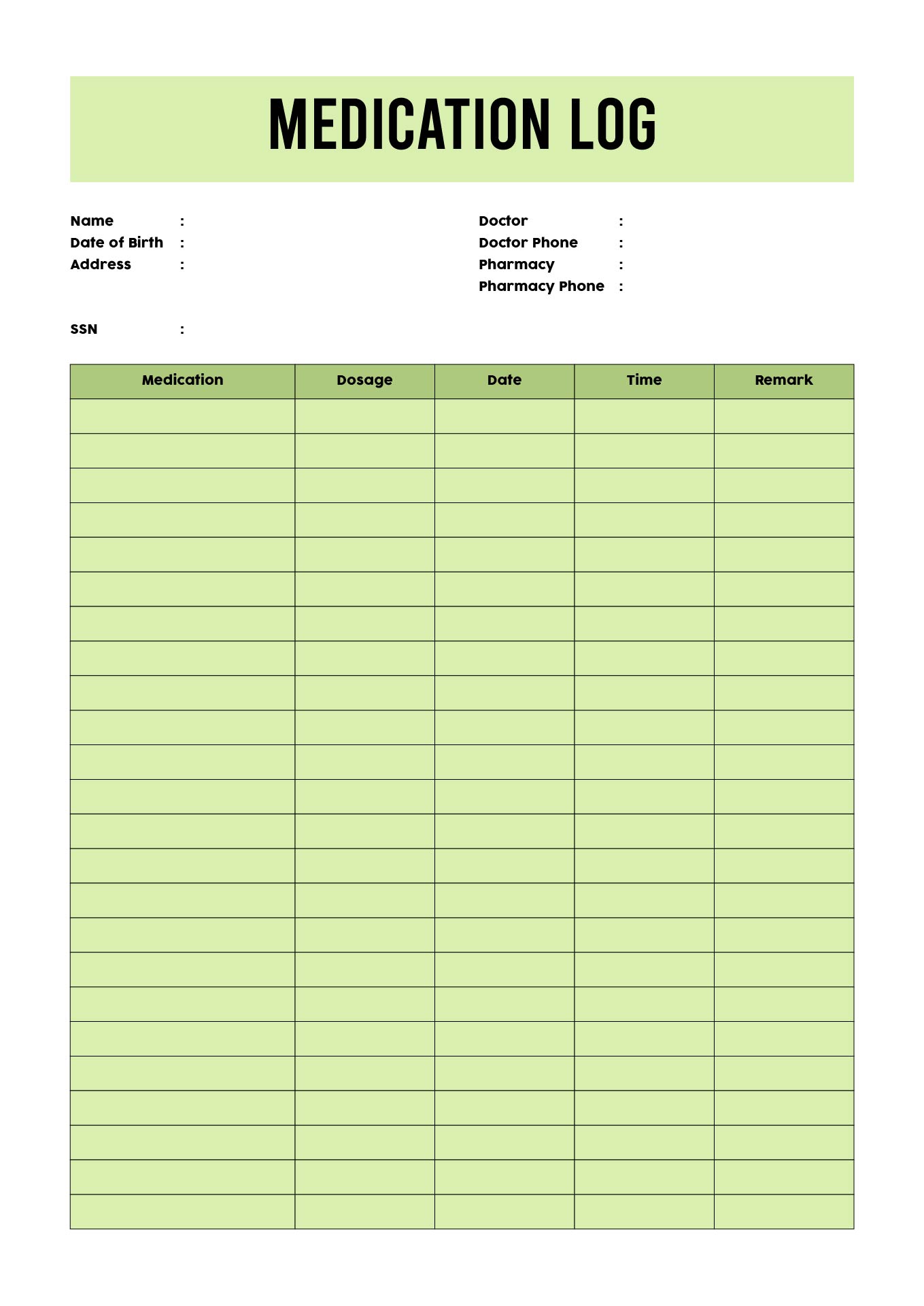
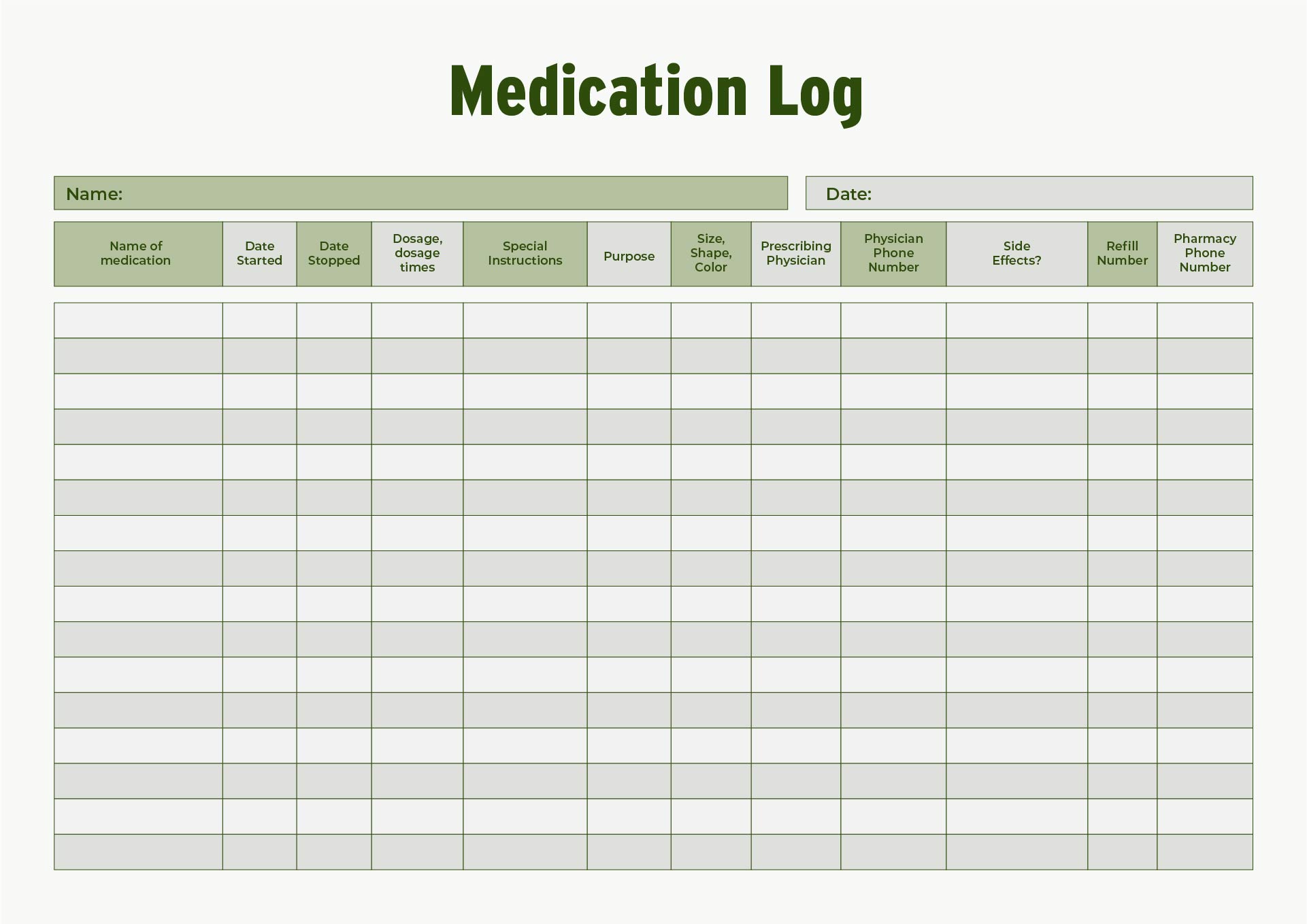
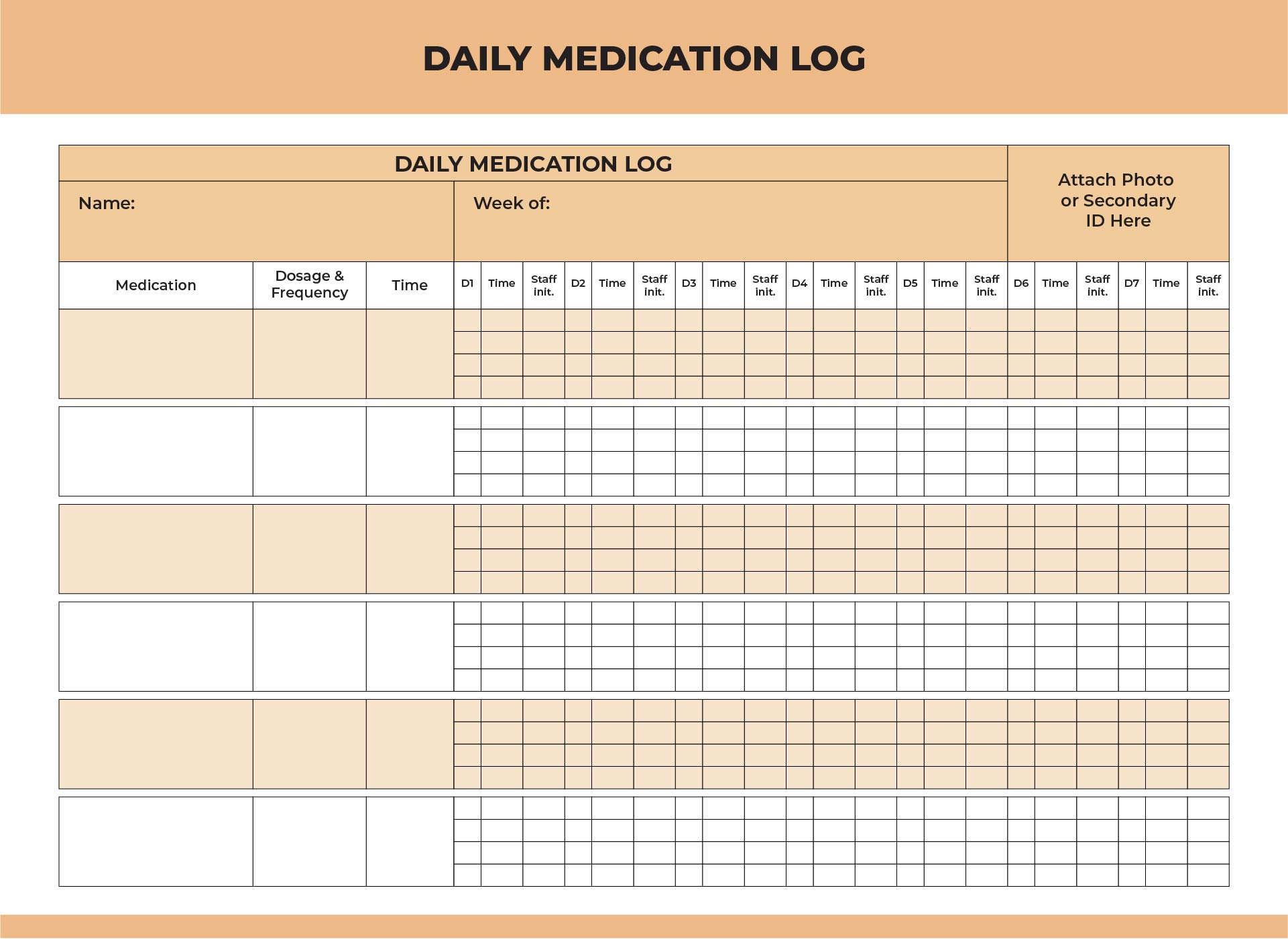
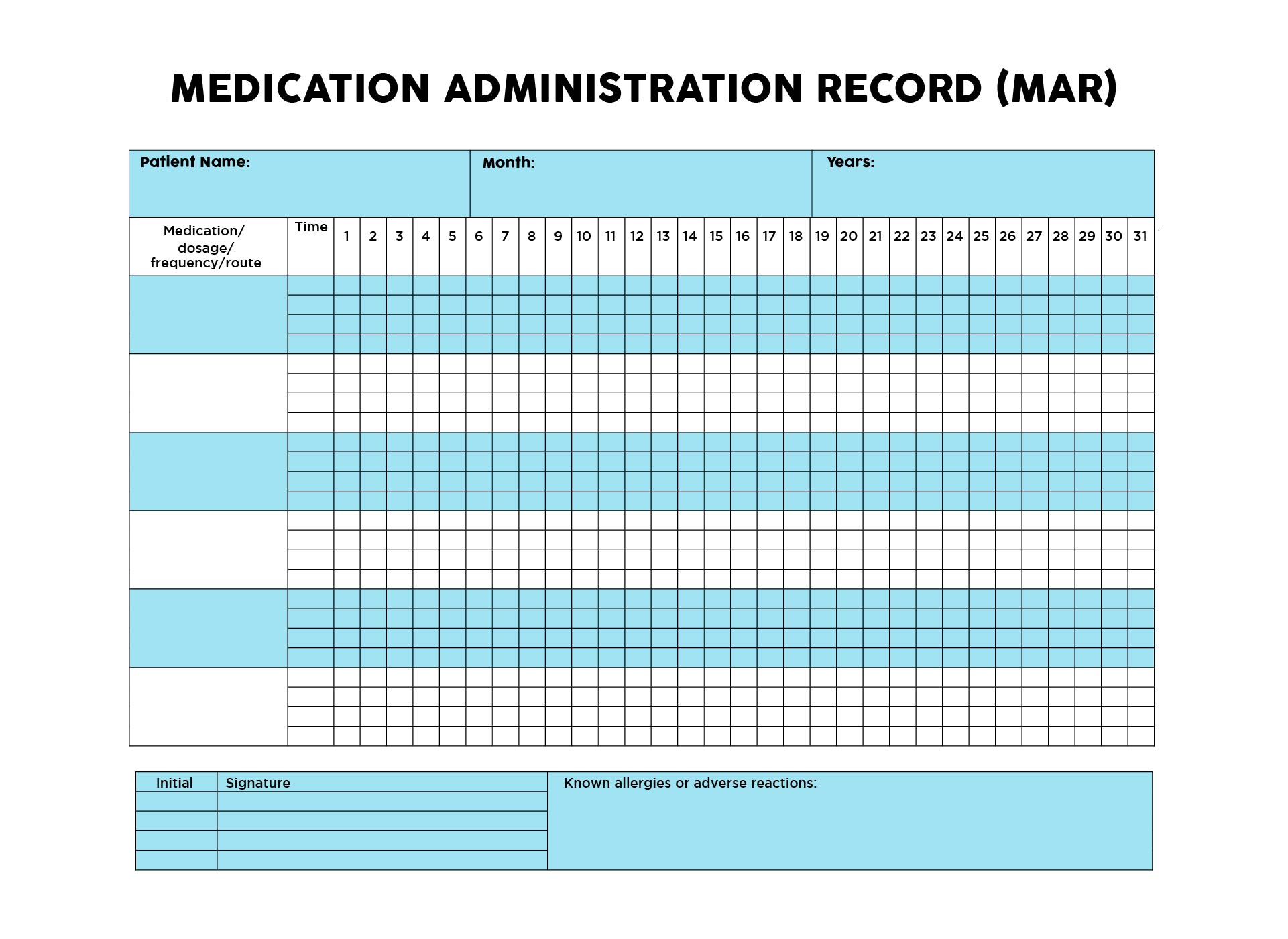
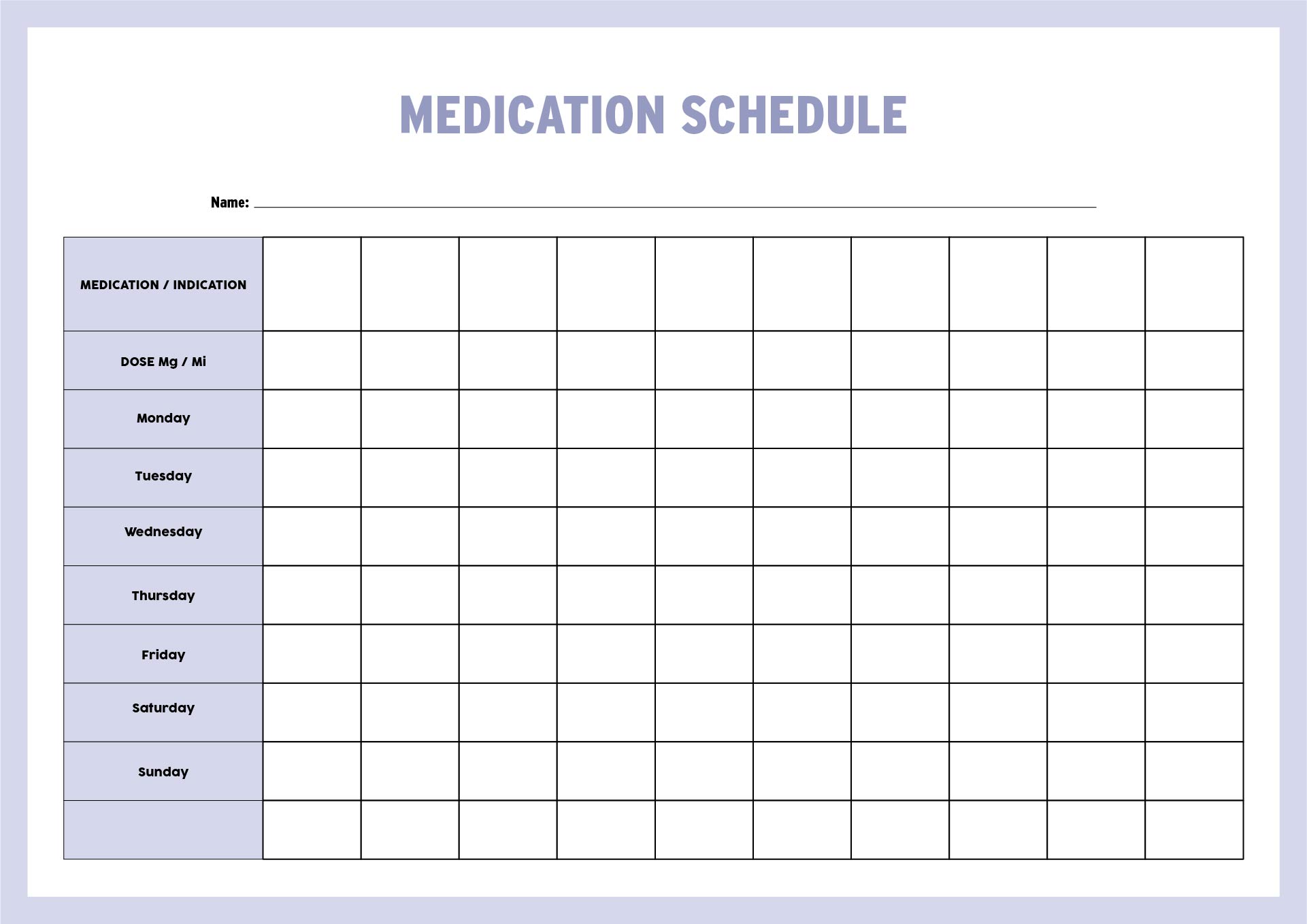
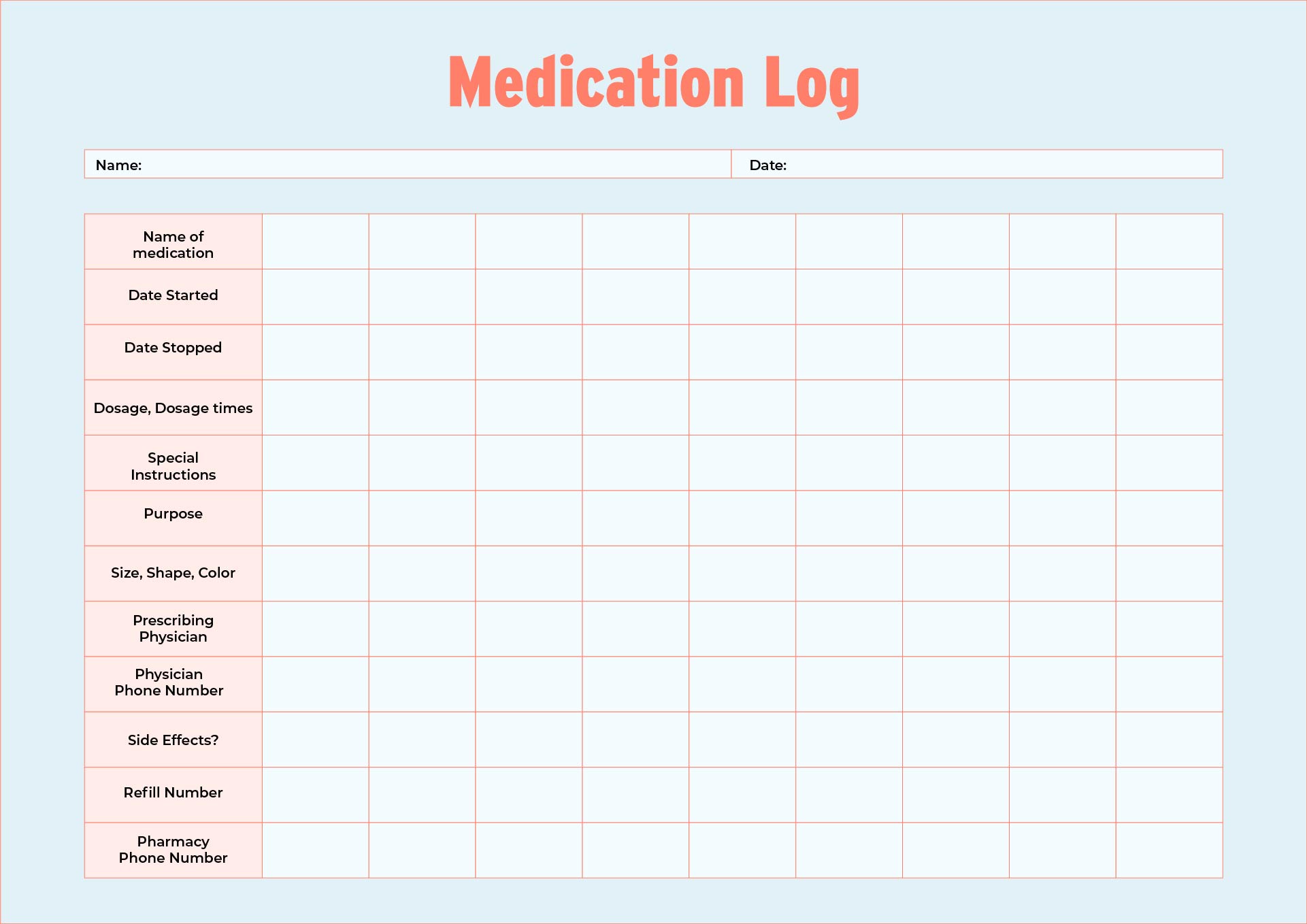
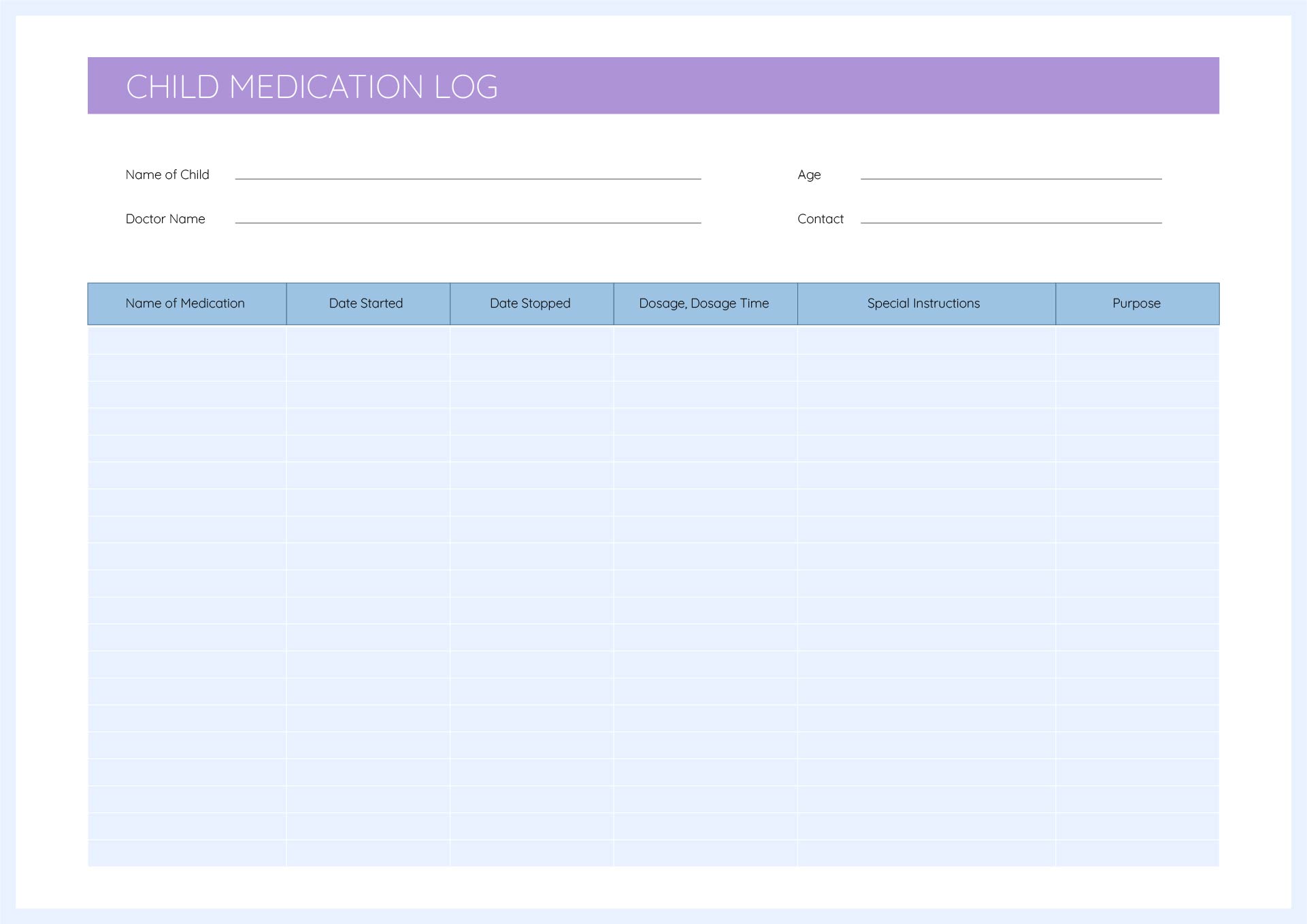
Do you know that your morning routine has a significant influence on the entire of your day? Maintaining a healthy morning routine will help you be more productive. It can also decrease stress and increase happiness. If you have children or a pet, you must take care of them. So, in essence, people who have such responsibility will continue with their mourning rituals. If you are just getting started, it is best to define your morning routine goals first. Here's a sample morning routine for you to try. Set your alarm for the morning and accept responsibility for it. People tend to make the first alarm so they can sleep any longer while waiting for the continuous alarm. Set your alarm and wake up right away will create discipline sense. If you passed this first task, you will feel easier to do your following tasks. After you wake up, concentrate on yourself. Gather your energy and take a deep breath to attract positive energy. The first thing you should do when you wake up is drinking a glass of water. According to the research, drinking a glass of water after waking up will kick-start your metabolism and increase it by around 30%. Begin moving around and exercising your body. Regular exercise has a plethora of health benefits. Cleaning your room will also make you want to do anything afterward. One of the pleasures is seeing our room neat and clean in the morning. Consume a nutritious breakfast. You could look up your daily nutritional needs on the internet to help you plan a healthy breakfast. If you want to be more specific, you can seek advice on nutrition that is appropriate for your condition. This is how you can begin a healthy morning routine. If you already have this kind of flow, your life is most likely becoming easier. Make sure to be disciplined in all of your actions.
Have something to tell us?
Recent Comments
Thank you for providing the Free Printable Daily Medication Log! It's a helpful tool for keeping track of my medication routine and staying organized.
This is such a helpful and convenient resource! Thank you for providing this printable daily medication log. It's great to have a systematic way of keeping track of my medications.
Thank you for providing this helpful Free Printable Daily Medication Log. It's great to have a simple yet efficient tool to keep track of my medications.